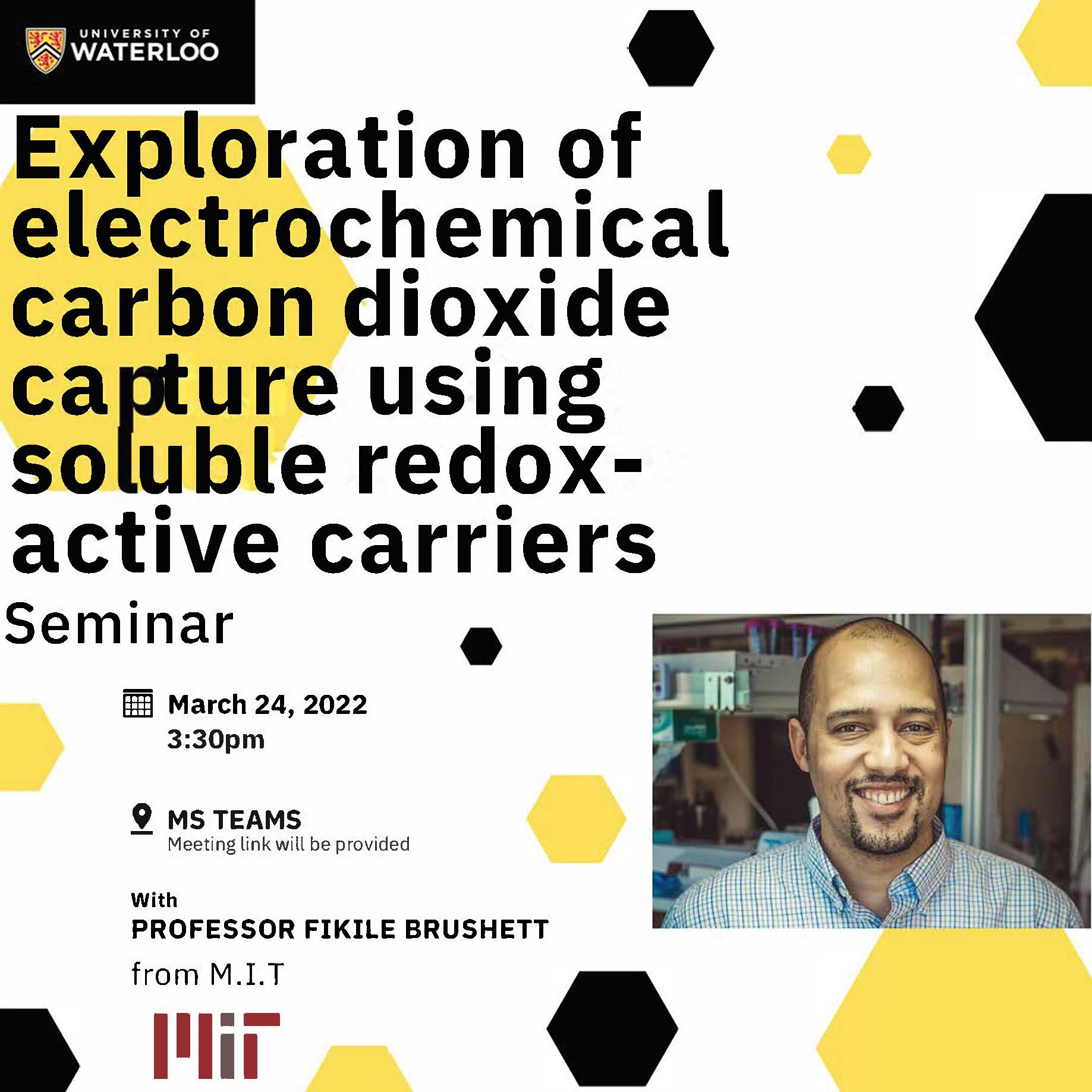The
Chemical
Engineering
Department
is
hosting
a
special
graduate
lecture
on
exploration
of
electrochemical
carbon
dioxide
capture
using
soluable,
redox-
active
carriers.

Biographical Sketch
Fikile Brushett is an Associate Professor in the Department of Chemical Engineering at the Massachusetts Institute of Technology where he holds the Cecil and Ida Green Career Development Chair. Before joining the Institute, he received his Ph.D. in Chemical Engineering from the University of Illinois at Urbana-Champaign and performed postdoctoral work in the electrochemical energy storage group at Argonne National Laboratory. His research group seeks to advance the science and engineering of electrochemical technologies that enable a sustainable energy economy. He is especially interested in the fundamental processes that define the performance, cost, and lifetime of present day and future electrochemical systems. His group currently works on rechargeable batteries for grid energy storage and electrochemical processes for carbon management. He also serves as the Research Integration co-Lead for the Joint Center for Energy Storage Research, a DOE-funded Energy Innovation Hub.
Abstract:
Deep, society-wide decarbonization is a grand challenge of the 21st century, requiring the development, manufacture, and deployment of transformative carbon-neutral and carbon-negative technologies on a global scale. Carbon dioxide (CO2) capture coupled with storage or conversion is projected to play a key role in mitigating and even reversing carbon emissions. Present-day carbon capture processes rely on thermochemical cycles where solvents/sorbents absorb and release CO2 at lower and higher temperatures, respectively. While functional and available at the commercial scale, these embodiments are energetically intensive and typically rely on fossil fuel derived heat for CO2 desorption, ultimately limiting effectiveness. Electrochemical approaches may enable lower energy CO2 separations, as electrode potential can be modulated to selectively activate sorbents rather than temperature and pressure swings that impact the entire capture media. Moreover, electrochemical systems may enable direct integration of renewables, modular deployment, and operation at ambient conditions.
In this talk, I will explore the opportunities and challenges of electrochemical CO2 separations using soluble, redox-activated capture species. First, I will describe thermodynamic modeling efforts to articulate the performance-determining relationships between molecular/electrolyte properties, system configurations, and operating conditions. I will then extend these analyses to low-dimensional electrochemical models that begin to consider the impact of kinetic, ohmic, and transport losses on the efficacy of different candidate device formats. Finally, I will describe early-stage experimental efforts, in collaboration with chemists at University of California, Irvine and University of California, Los Angeles, to develop redox carriers with suitable properties for electrochemical CO2 separations.